West Midlands: Three things you wanted to know
- Published
Ask us your questions about where you live
People have been using Your Questions to tell us what they want to know about the West Midlands.
You asked about the accent of the Staffordshire Potteries and how it came about.
You also wanted to know when tunnels were built under the city of Coventry and if any maps exist.
And you were curious about where to go to research Shropshire families before 1600. Here is how we answered your questions.
"Where does the accent of the Potteries originate from?"
English language scholars say that the Potteries dialect derives down from Anglo-Saxon Old English.
For example the local word "nesh", meaning soft, tender, or to easily get cold is derived from the early English, "nesc, nescenes".
The local word "slat", meaning to throw, is from the old English "slath", meaning moved.
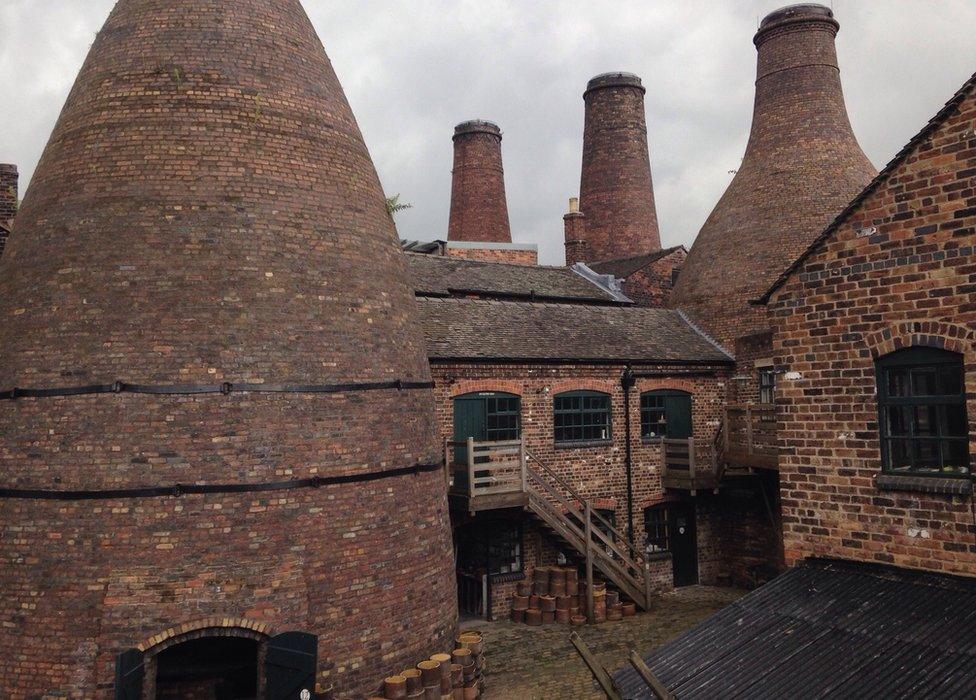
The pits or the pots were the two main occupations in Staffordshire
Steve Birks is a potter and chronicler of the Stoke-on-Trent area. He wrote this article for the BBC on the history of the Potteries dialect.
"The fact that there used to be two main occupations in north Staffordshire - the pits or the pots - meant that people of these specific social classes spent most of their days in close proximity with people with the same way of speaking," he wrote. "This helped to reinforce and preserve the dialect."

"When were the Coventry tunnels built and are there any maps of the tunnels?"
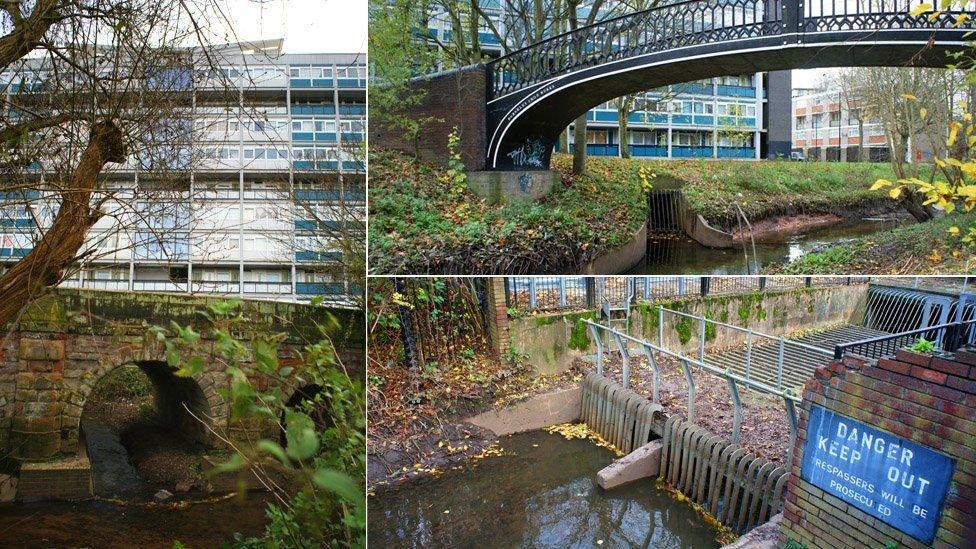
The tunnels house the hidden River Sherbourne, which was covered by city centre development in the 1960s, and this BBC article details the history.
Work is currently under way to uncover and showcase the river as part of a city centre development scheme.
The plans , externalinclude maps and computer generated images of how the city will look once parts of the tunnels are removed to reveal the river.
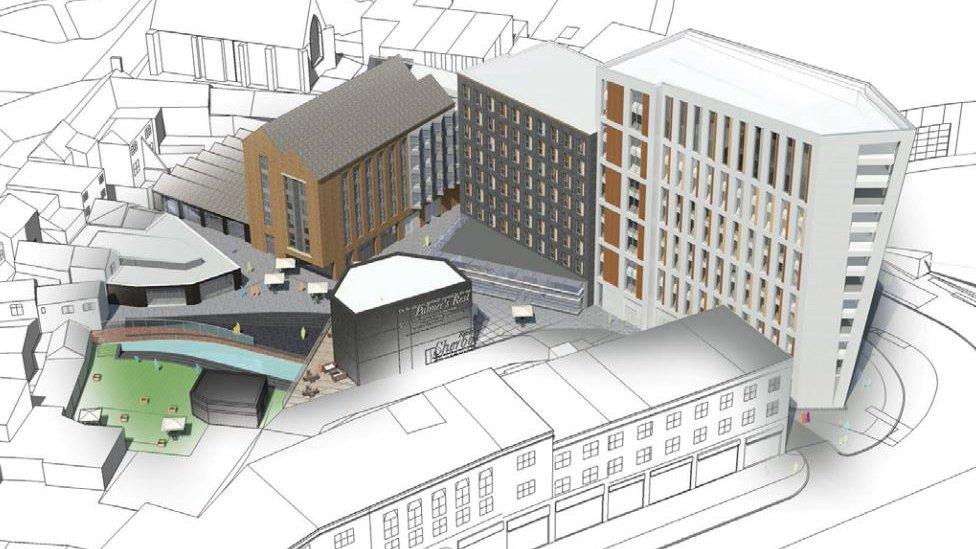

"What public resources are available to aid in genealogical research of families local to Shropshire pre-1600s?"
Shropshire Archives holds the records for the whole county including Telford. But Shropshire Council told us pre-1600s research could be difficult because there are no parish registers before 1538.
The council has produced a series of online guides, external, including one giving advice on how to research early family history.
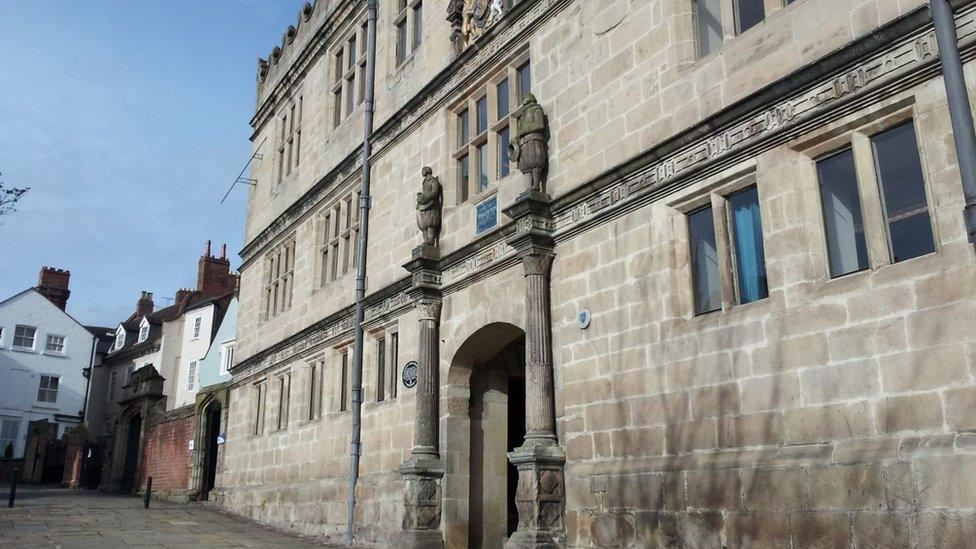
Shropshire archives can be found at Shrewsbury library on Castle Gates
It also publishes a hard copy of the "family history guide" which lists the different types of records it holds.
Another place to try is the Shropshire Family History Society's help desk at the Shropshire Archives, external on Castle Gates in Shrewsbury.
- Published6 January 2017
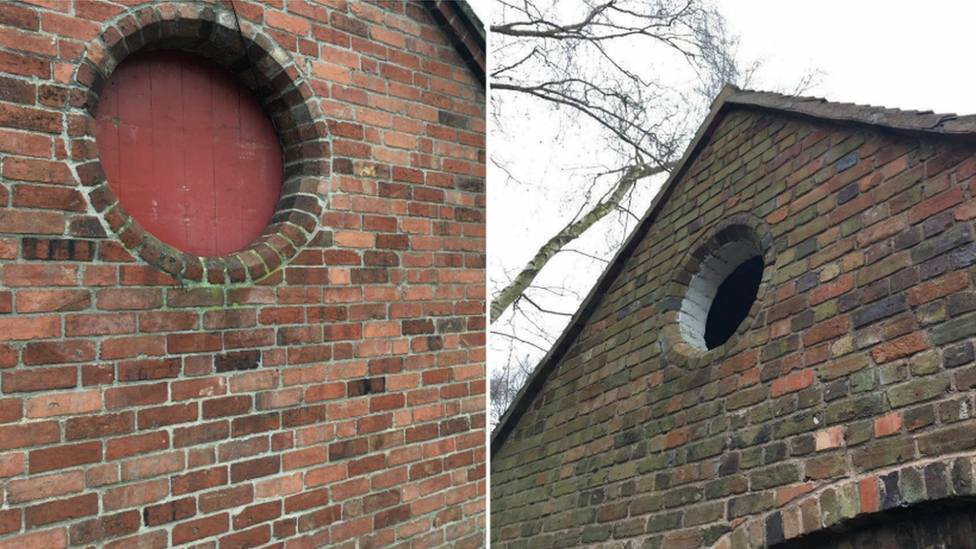
- Published30 December 2016
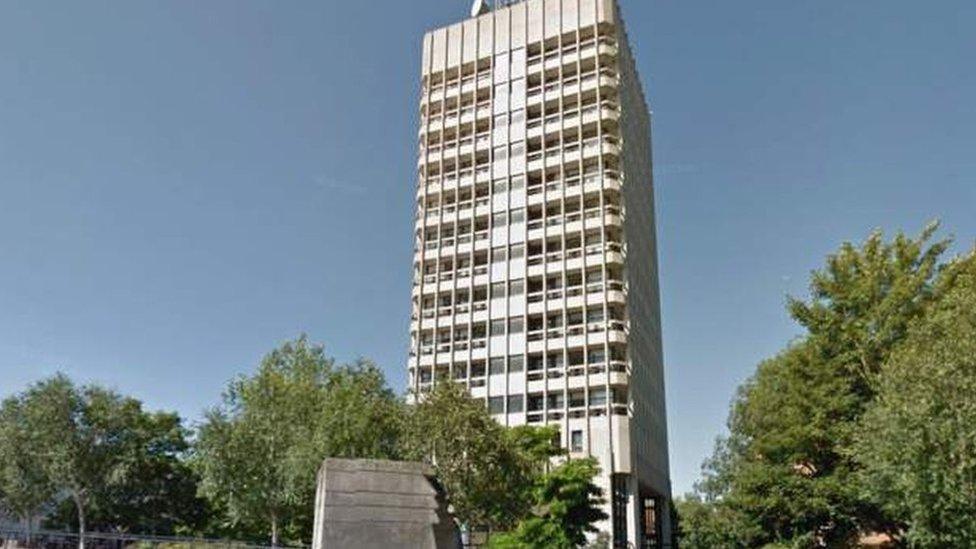
- Published23 December 2016
